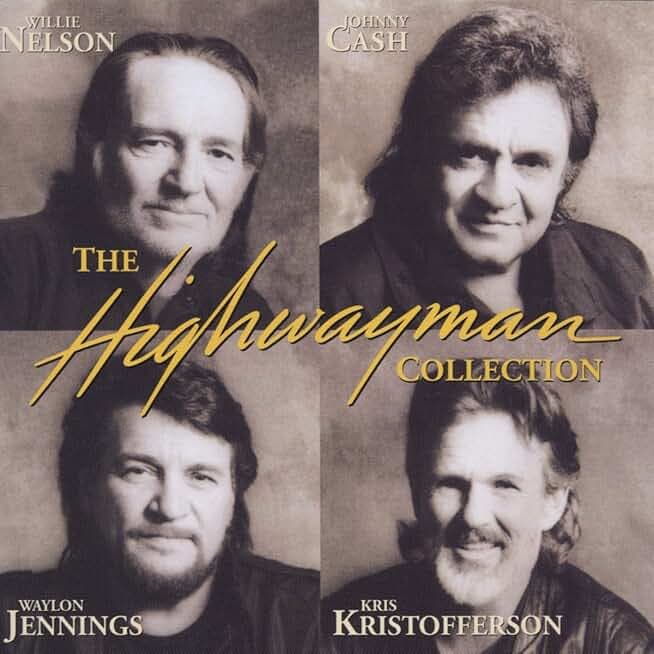
The Highwaymen – “Silver Stallion”: A Journey Through Freedom and Rebellion
Released in 1990 as part of their Highwayman 2 album, “Silver Stallion” is a hauntingly beautiful track by the country supergroup The Highwaymen—featuring legendary artists Johnny Cash, Willie Nelson, Waylon Jennings, and Kris Kristofferson. This song stands as a testament to the group’s embodiment of the rebellious, free-spirited ethos that defined outlaw country in the 1970s and 1980s. It’s not just a song; it’s a narrative of personal freedom, individualism, and the desire to live on one’s own terms, traits synonymous with each of these iconic musicians.
“Silver Stallion” was not released as a single, and while it didn’t make it to the Billboard charts like some of their other tracks, it gained a significant following for its thematic depth and seamless vocal interplay between the members. Each Highwayman takes turns narrating, their deep, gravelly voices layering a sense of weight and mystery over the track.
The song’s central metaphor revolves around the silver stallion, a symbol of freedom, power, and untamed spirit. From the opening line, “I’m gonna steal me a silver stallion,” the narrator paints the picture of a man determined to break free from the confines of the world. The stallion is not just a horse, but a representation of the desire to live unfettered by society’s rules. It’s a longing for escape, to embrace the wilderness and freedom that exists beyond the reach of the mundane.
In Waylon Jennings’ deep baritone, the imagery of riding through the open landscape evokes a life untethered, while Johnny Cash‘s unmistakable voice brings a sense of gravitas to the adventure. As Willie Nelson and Kris Kristofferson join in, their harmonies add layers of emotion, suggesting both the allure of freedom and the loneliness that can accompany such a life.
Musically, “Silver Stallion” is a blend of country, folk, and western influences, leaning heavily into the atmospheric storytelling that each of these artists was known for. The arrangement is sparse yet lush, featuring acoustic guitars, a subtle steel guitar in the background, and a driving rhythm that feels like the slow, steady gallop of a horse. The music complements the lyrics perfectly, creating a mood that is both reflective and resolute.
Though not as overtly rebellious as some of their other tracks, “Silver Stallion” is a quiet meditation on freedom—a quieter anthem of personal liberation. It contrasts with their more famous outlaw songs, showing that freedom is not always loud and brash; sometimes it’s found in the quiet moments of solitude, riding away into the unknown.
By the time they recorded “Silver Stallion”, all four members were already established legends in their own right. Johnny Cash had long been the “Man in Black,” standing as a symbol of the downtrodden. Willie Nelson was celebrated for his distinct voice and crossover appeal, Waylon Jennings for his gritty outlaw attitude, and Kris Kristofferson for his songwriting genius. Together, they formed a supergroup that not only carried the torch for country music but also challenged its conventions.
“Silver Stallion” continues to resonate with listeners decades after its release. It’s a song that speaks to anyone who’s ever longed to escape, to embrace the wildness within, and to live life on their own terms. In this track, we hear not just the voices of four musicians but the spirit of the outlaw country movement itself—a movement defined by rejecting the status quo and embracing personal freedom, no matter the cost.
While “Silver Stallion” might not have charted like some of the other Highwaymen classics, its message endures. It’s a song for those who dream of riding off into the sunset, free from the burdens of society, and guided only by their own desires and instincts. Through their voices and musical talents, Johnny Cash, Waylon Jennings, Willie Nelson, and Kris Kristofferson remind us that, in the end, true freedom often lies in the pursuit of the untamable.